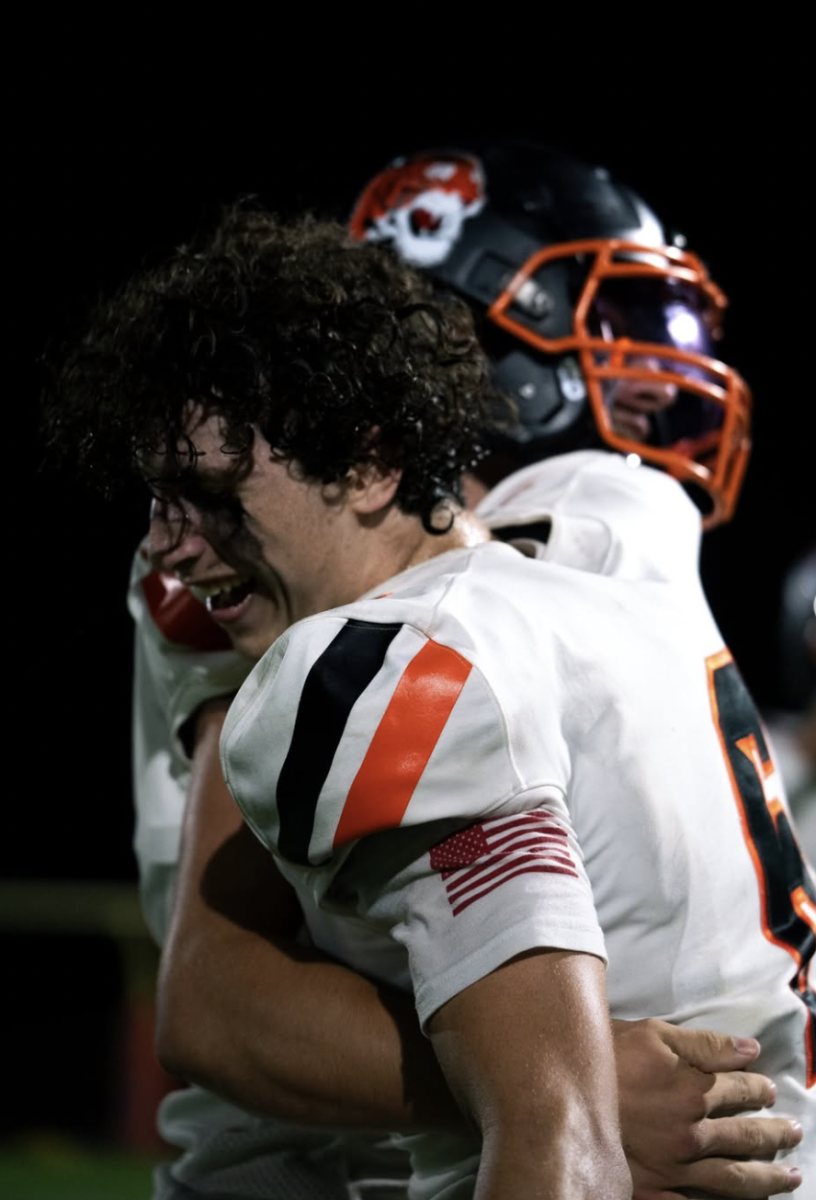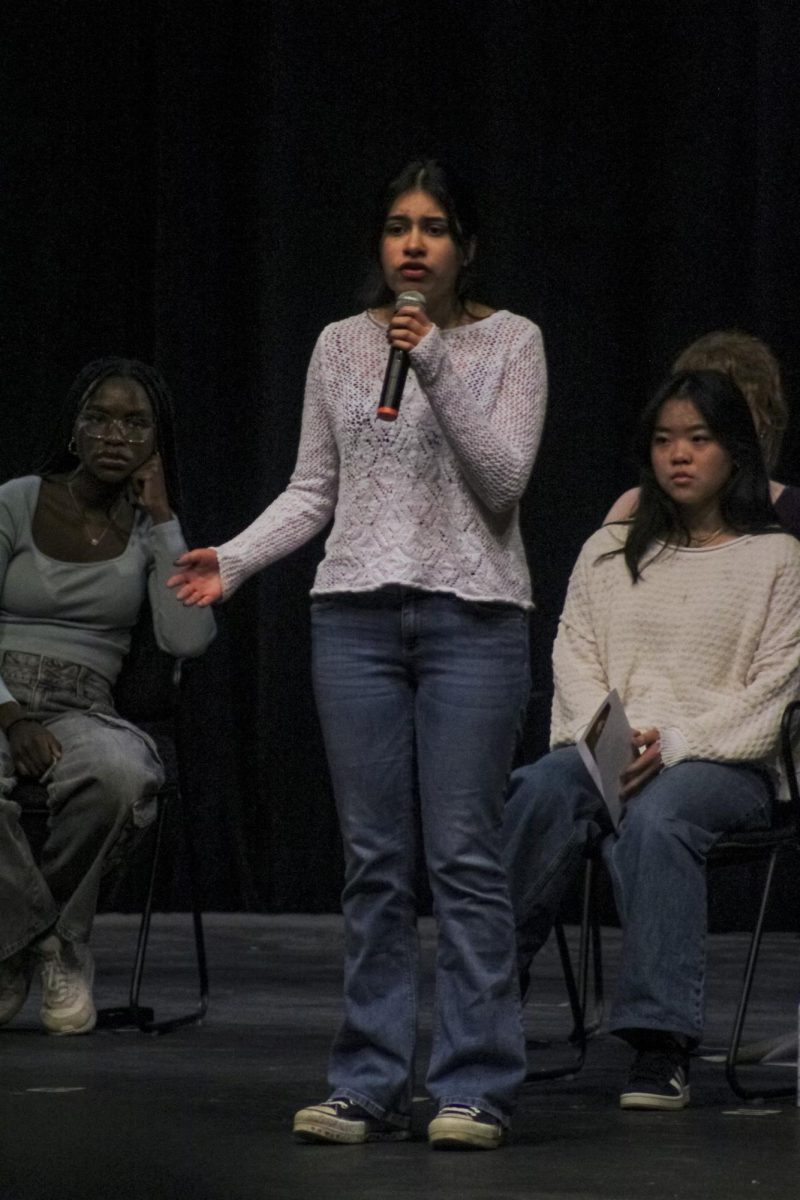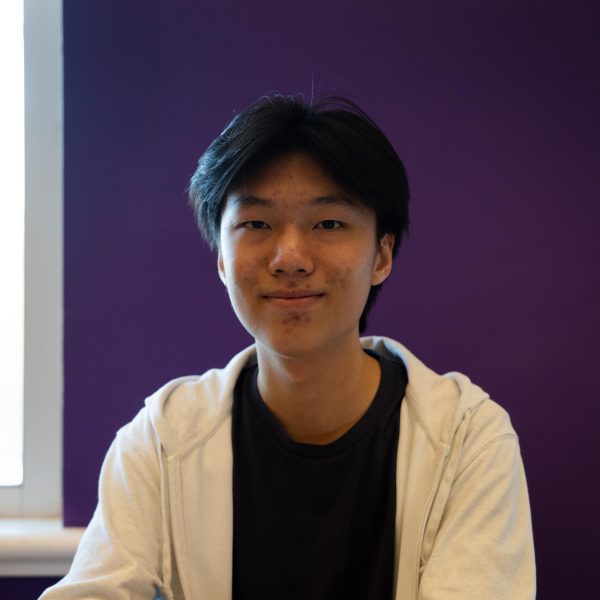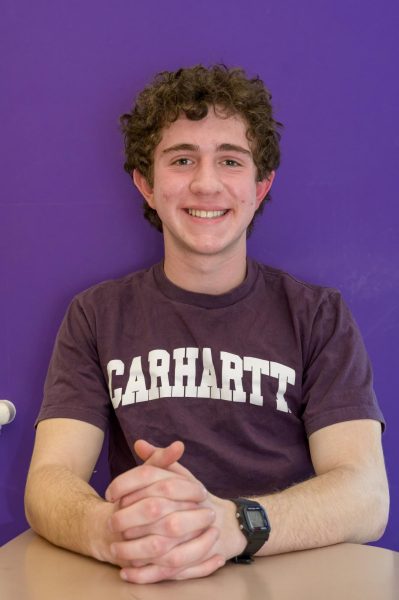The annual Martin Luther King Jr. Speech Contest finalists, elected by peers and faculty alike, presented the culmination of their work during WIN block on Friday, March 1, in Lasker Auditorium. Originally scheduled for Jan. 26, the event was rescheduled date was moved, however, due to the Newton Teacher Association (NTA) strike.
Speeches ranged from spreading awareness of misrepresentations of obsessive-compulsive disorder (OCD) to the underrepresentation of second-generation immigrants’ mental health. Students were greeted by jazz music played by juniors Oscar Bohnenkamp and Ziv Dudnik as they piled into the auditorium to listen to their peers’ speeches.
Sophomore Will Hartzog, set the tone with his presentation titled “Humor Me”, which critiqued the rise of mean-spirited humor in our society, particularly its impact, “punching down” on vulnerable groupsSophomore Eve Stern followed with “I’m So OCD”, which tore into common misconceptions regarding OCD. Stern’s speech described her personal experiences with distressing and persistent thoughts associated with the condition.
“Mental disorders, whether it’s OCD, depression, or even schizophrenia are not meant to be used to describe everyday emotions,” said Stern. “There is a reason why they are called disorders—they kill people and ruin people’s lives.”
Next came sophomore William Yanhs’ “When A Bandage Breaks You.” Yanh’s speech warned against using marijuana and misconceptions about addiction, especially for adolescents.
He added that while it may seem like a ticket to safety, it would ultimately come back to haunt you with feelings of depression, anxiety, and psychosis.
The fourth speech was “Rejecting the Tilted Scales” by sophomore Aanya Vishwanath. In it, Vishwanath emphasized systemic suppression of women and its abnormality. Flipping the script, she asked the audience how it would feel if all 46 presidents were women instead of men.
Sophomore Mariana Chango-Gassett’s speech “The Stolen People From a Stolen Land” was next. Chango-Gassett listed statistics and raised awareness regarding the underrepresentation of crimes against indigenous women.
The subsequent speech was Sophomore Brooke Bennett’s “Imagine This”. Bennett’s speech described hardships that come with attending predominantly white schools.
The final presentation, “Second Generation Story”, by sophomore Lauren Cao addressed the overlooked issues regarding second-generation immigrants’ mental health.
“I’ve never really openly talked about my mental health, and after talking to my other second-generation friends, I realized they didn’t either,” said Cao. “Since our school is filled with second-generation immigrants, I thought talking about mental health would have been a powerful way to let those students know that this topic is okay for them to talk about even if it isn’t normalized.”
According to Hartzog, the strike had thrown off many finalists’ speech memorization, including his own. “Then the strike happened and they forgot about it so they had to re-memorize some of their stuff,” he said.
“During the strike, I didn’t practice my speech at all, so I forgot some parts of it,” added Cao.
However, finalists were able to come back to deliver strong performances on the topics they truly cared about.
“What inspired me at the end of the day was really just something I cared about and something I could speak about easily,” said Hartzog.











































